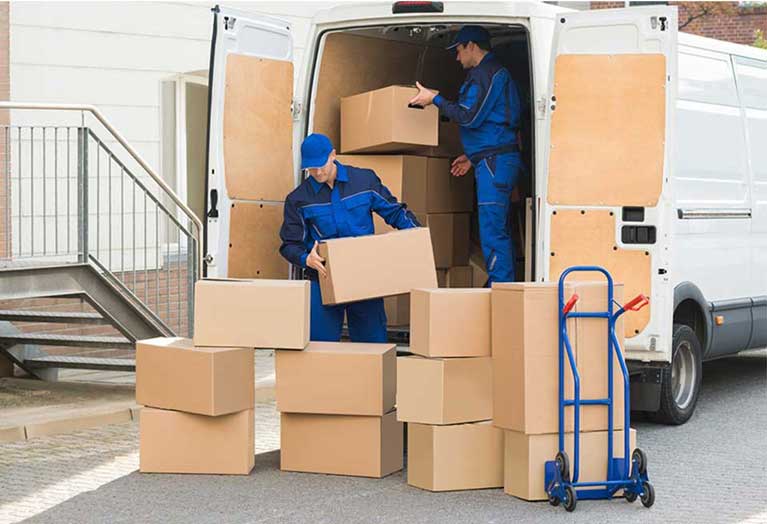Safeguarding Your Belongings: The Role of Interstate Moving Insurance
Relocating to a new state is thrilling, but it’s vital to ensure the safety of your belongings. Interstate moving insurance protects your valuables against damage or loss during transit. This blog post highlights the importance of such insurance, offering financial security against unforeseen incidents. Insurance coverage, typically included in moving contracts, offers a valuation estimate and is detailed in the product disclosure statement. Adequate moving coverage is crucial for safeguarding valuable home items and providing peace of mind during the move.
What is Interstate Moving Insurance?
Interstate moving insurance is a specialised cover that protects your belongings during interstate relocation. It offers comprehensive protection against damage or loss, distinct from the basic liability coverage usually included by moving companies. This insurance is essential for peace of mind, ensuring your items are financially safeguarded against unforeseen incidents during transit. It’s essential to understand the details of this insurance, including coverage limits and claim processes, to make informed decisions for a secure move.


Why is Interstate Moving Insurance Important?
Relocating can be stressful, and ensuring the safety of your valuables is essential. While moving companies strive to prevent damage or loss, unforeseen incidents can still happen. Interstate moving insurance is critical to protecting your belongings during transit. Consider the value of your items when choosing insurance coverage, as some may require full-value protection or additional coverage. Obtaining insurance from a reputable provider and remembering that some items might not be fully covered is advisable.
However, various coverage options are available, including contents insurance, to suit different needs.
Full Value Protection
When hiring professional movers for an interstate move, it’s essential to understand the two coverage options they provide. Complete Value Protection is the more comprehensive option. Under this coverage, the moving company is responsible for the total replacement value if your items are damaged, destroyed, or lost. They may repair the item, replace it, or provide a cash settlement for the repair or replacement cost.
This option offers more security for your belongings but comes at a higher cost, depending on your deductible.


Transit & Public Liability Insurance
Transit Insurance and Public Liability Insurance are crucial for removalists, ensuring protection during moving. Transit Insurance covers the loss or damage of items while in transit, providing peace of mind to both the removalist and the client. This coverage is vital, especially for long-distance or interstate moves, where the risk of damage is higher.
Public Liability Insurance is essential for protecting the removalist company against claims of property damage or personal injury caused during the moving process. This insurance is not just a safety net for the removalist company but also reassures clients that they are dealing with a responsible and professional service provider. Together, these insurances form a comprehensive safety net, safeguarding the interests of both the clients and the removalist service against unforeseen events and mishaps during the relocation process.
What Is Not Covered by Moving Insurance Policies
Moving insurance policies typically exclude certain items and scenarios from coverage. Standard exclusions include damage from natural disasters like earthquakes or floods and losses due to inherent vice or normal wear and tear. Valuables like jewellery or collectibles often require additional coverage. Items packed by the owner, rather than professional movers may not be covered. Also, mechanical or electronic malfunctions not caused by physical damage during the move are usually not covered. Reviewing your policy thoroughly to understand these exclusions to protect your belongings better during a move is important.

Failure to Declare High-Value Items
Please inform your mover in writing about items of significant value, such as valuable artwork, jewellery, or collectibles, or the insurance policy may not cover their total value. Declining and documenting these items properly is crucial to ensure appropriate coverage.
Each state may have different liability and valuation requirements that can impact the coverage provided by moving insurance policies. In that case, you should check with your local consumer affairs agency, county, or state moving association to understand the specific rules and regulations for movers in your area. Additionally, you are not moving to another form.

Understanding Moving Insurance
When selecting a moving company, thoroughly research their insurance offerings and reputation for handling claims. Compare policies from different companies, ensuring they have a solid track record. Please pay close attention to the coverage limits of each policy, ensuring it matches the total value of your possessions. Also, understand the exclusions and limitations, such as restrictions on specific items or damage types like natural disasters.
Inquire about any additional coverage options that may be available. Some moving companies offer separate liability coverage through third-party insurance providers. Assess the benefits and costs of such additional coverage.
This research ensures you choose a policy that aligns with your moving needs and provides adequate property protection.

The Importance of Written Insurance Documentation
To ensure you’re adequately protected during your move, obtaining written documentation of the insurance policy is vital. This includes understanding all terms, coverage details, and exclusions. Review these documents carefully. If you have doubts or need more specific advice, don’t hesitate to consult a professional specializing in moving insurance.
Their expertise can be invaluable in guiding you to the right policy choice. Following these steps will help you select an interstate moving insurance policy that best suits your needs and safeguards your possessions during the relocation.

Conclusion
Interstate moves can be stressful and complicated. But, with the right insurance policy, you can ensure your belongings are adequately protected against unexpected loss or damage. Hiring an experienced professional moving service like Royal Sydney Removals will help provide peace of mind, knowing that your valuable possessions will be handled carefully. With the right insurance policy, you can rest assured that your valuables are protected during your move, allowing you to focus on settling into your new home.
Royal Sydney Removals Services
- Ensuring the Safe Transport of Your Belongings
- Choosing the Right Interstate Moving Company
- Choose the Right Interstate Moving Truck Size
- Property Maintenance and Handyman Services When You Move
- Tips When Looking for Self-Storage Options
- Cost Of Living in Sydney
- Best Places to Live in Sydney
- Moving Checklist
- Interstate vs. Local Moving: What’s the Difference?


